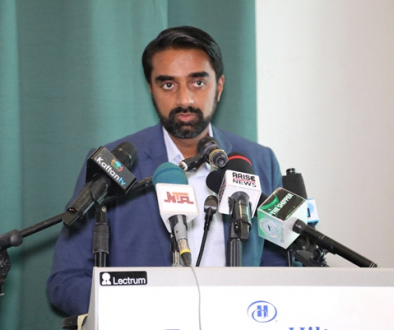Who will minister at Buhari’s New Shrine?
Nigeria is a corporatist society – one in which the direction of State Policy is determined by the resultant of interests of the groups from politics, military, religion, traditional establishments, labour, business, civil society and so on, that manage to capture the State. The emergence of Muhammadu Buhari has threatened that status quo as it seems by fighting corruption and dismantling the structures used by various syndicates, he is laying the foundation for greater equity in Nigerian Society. Yes, “equity,” from perspective of the poor and downtrodden, not necessarily from the perspective of those who believe they (their tribe, region, clan etc.) have been denied a seat at the table. This push towards greater equity in the first 100 days of the new administration is symbolic as it is reminiscent of the Herculean cleaning of the Augean Stables or Jesus’ cleansing of the temple (using a whip to throw out the money changers and those who sold doves) presenting the idea that it is indeed time for change.
The seat of Government is being transformed into a sacred space and the question now is, who will minister at Buhari’s new shrine? During a televised programme on Monday July 27, 2015 he said he was looking towards appointing only patriotic, decent and experienced Nigerians as ministers in his government – with both politicians and technocrats likely to make the list. According to him, “from what I have seen so far, we need really patriotic Nigerians – Nigerians that can work very hard: knowledgeable, experienced, committed Nigerians – to be in charge of ministries.” Given the standard is quite reasonable, why is it proving to be a challenging task finding candidates?
Keeping strictly to merit (hard work, patriotism, decency, competence and experience) has arguably not worked before in Nigeria, as there are many examples of people in government that the public had faith in who turned out to be just as corrupt as those before them. Could the difference be in the way that Buhari has defined merit? Many may be hard working or patriotic or decent or competent or experienced but surely there must be much fewer who are hard working, patriotic, decent, competent and experienced. Such individuals one can expect to also be interested in “equity”. It was recently speculated that several candidates suggested for ministerial positions withdrew their applications for failing to meet one or more of the desired criteria. It was also widely speculated that they were heavily scrutinized by the DSS and other State agencies.
We know that “He that comes into equity must come with clean hands” however, there is also the maxim that “He who seeks equity must do equity”. So, can the President’s appointments truly be devoid of politics and geo-political or gender or religious bias? The politics surrounding the appointment of ministers is not something everyone is privy to but most become aware of the messy aftermath of doing it in ways that don’t preserve equity. In the search for those with ‘flawless records,’ the president is said to have refused to consult with his party. In President Buhari’s famous inaugural speech, his pledge to the Nigerian people was that he belongs to everybody and he belongs to nobody. What does this mean? With the announcement of close to 30 key officials, many fear the president may have fallen into the stereotypical Northern hegemonist he had been categorized as during the election campaigns.
Are the appointments made so far by Mr. President an indication of the trend of future appointments? Is it fair to accuse the president of lop-sidedness in appointments when we are yet to see the full colour of his cabinet? The President openly said during a Q & A session while he was in the US, that he should not be expected to offer the same treatment to Nigerians who barely gave him votes and those who actually voted for him. Nonetheless, the Special Adviser to the President on Media and Publicity assured the public that the president intends in subsequent appointments, to correct whatever perception is out there – and appointments will be more balanced. Will this political balancing game still be based on the president’s original criteria for merit? It remains to be seen.
Mr. Buhari’s zero tolerance for corruption is perhaps the strongest indication of the kind of expectation he has for incoming ministers. What is also going for his “one-man-army” approach to reform in the first 100 days is the improved alertness to public needs and service delivery by Ministries, Departments and Agencies generally, but more notably in the energy sector. This has held the politicians at bay because it has offered the public the much-needed hope of palliatives without which the politicians could have easily turned them against Buhari. Now the president needs quick wins that people can see leading to more sustainable change in the medium term – without these quick wins, the lack of political inclusiveness of in his approach will come back to bite him. If he succeeds in appointing those worthy to be priests at his new shrine, then he will consolidate his legitimacy, power, authority and influence. Mr. President’s courage should be saluted – it takes guts to remain focused while going against the grain.



